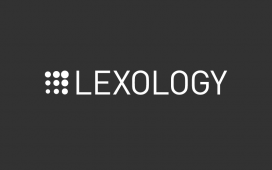Scammers are exploiting the buzz around the 2024 Paris Olympics to lure victims into investing in initial coin offerings (ICOs). These scams tend to promise big returns on “Olympic” tokens.
The campaigns manufacture hype around such offerings through the use of use fake websites, AI-generated images, and social media campaigns to entice investors.
Olympics Initial Coin Offerings (ICO) Fraud
Researchers from Trend Micro uncovered a recent scheme that claimed to offer an official “Olympics Games Token” for sale. The Olympic Games Token ICO website, theolympictoken[.]com, was registered on March 30, 2024, and its website went live a day later. The website also links to a legitimate Olympics 2024 logo and a countdown to the event, making it seem like a legitimate project.

It linked to a “whitepaper” – a document explaining the project’s tech and goals. But that link led nowhere useful. Instead of details, it dumped visitors on the official Olympics website. Red flag number one.
A Twitter account and Telegram channel pushed followers to buy tokens ASAP. When the original site got shut down, a near-identical one (olympictokensolana[.]com) popped up under a new name. The researchers spotted at least ten other websites using 2024 Olympics-associated branding to lure victims into ICO scams; some of them were shut down shortly after their discovery.
Use of AI-Generated Images Olympics in ICO Scams

The researchers remarked that AI-generated images are becoming increasingly common in such ICO scams, as they offer a cost-effective and time-efficient way to create convincing lures. Cybercriminals can use AI to generate text, correct spelling and grammatical errors, and even create sentences in languages they do not speak.

The researchers spotted at least three other ICO Olympics scam websites employing the usage of AI-generated imagery for promotion.
Spotting Fake ICO Campaigns
ICOs have gained significant attention as cryptocurrency continues to be adopted in various industries. While most new tokens lack utility and are simply memecoins, it does not always mean they are scams. Investors should be vigilant and look out for potential scams and rug-pulls. A legitimate ICO should have a proper website and social media presence, a transparent team, an active community, a comprehensive whitepaper, legitimacy of claims, token distribution, smart contract audit, and liquidity management.
The researchers have shared the following guidelines to help identify such scams:
- Proper website and social media presence: The researchers stated that scam sites are often poorly designed or lack active presence on social media.
- Transparent team: Cross-check the identities and credentials of the teams behind the offering. Anonymity is a red flag.
- Active community: Genuine projects have engaged followers on platforms like Discord, Twitter or Telegram, which suggests genuine interest and support.
- Comprehensive whitepaper: A whitepaper that outlines the project’s goals, utility, and technical aspects, which demonstrates a thorough understanding of the project’s concept and planning.
- Legitimacy of claims: Claims backed by verifiable evidence, such as partnerships, use cases, and endorsements.
- Token distribution: Avoid projects with highly concentrated token ownership which might increase the chances of exit scams.
- Smart contract audit: Audit by reputable third-parties, which identify vulnerabilities.
- Liquidity management: Liquidity is locked to prevent premature withdrawals and is decentralized among the community, which secures investors’ funds.
In the case of the Olympic Games Token, the website raised several red flags such as a very low number of token holders and an invalid whitepaper link. Investors and those interested in cryptocurrency should follow adequate precautions to avoid falling victim to such scams.
Experts have been monitoring Olympics-related search engine results and social media activity to counter fraudulent ticketing scams and coordinated disinformation campaigns.










